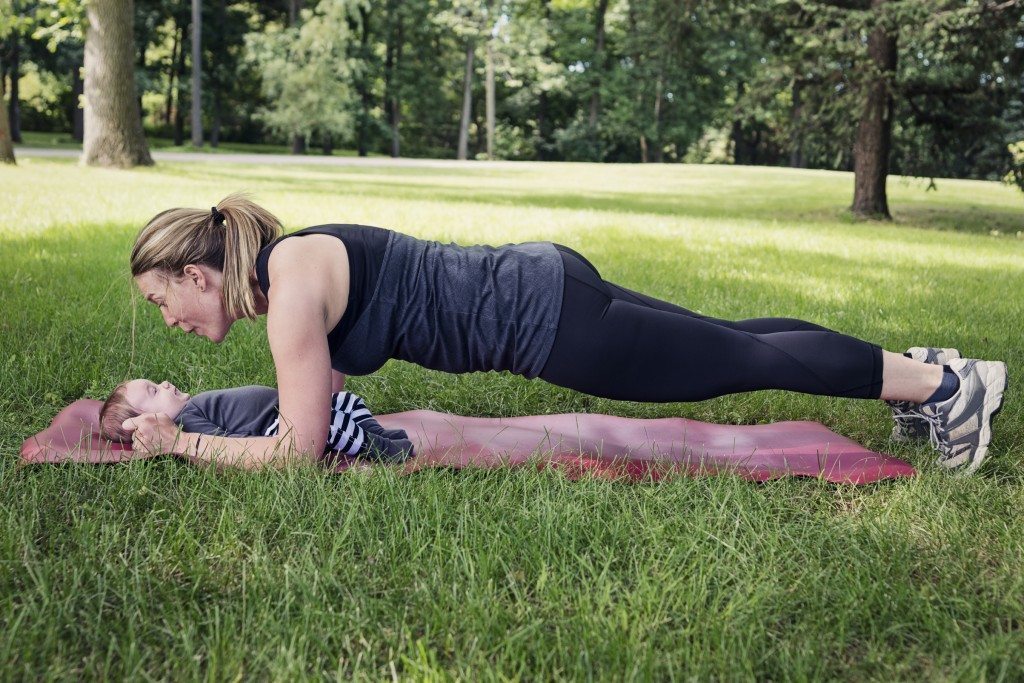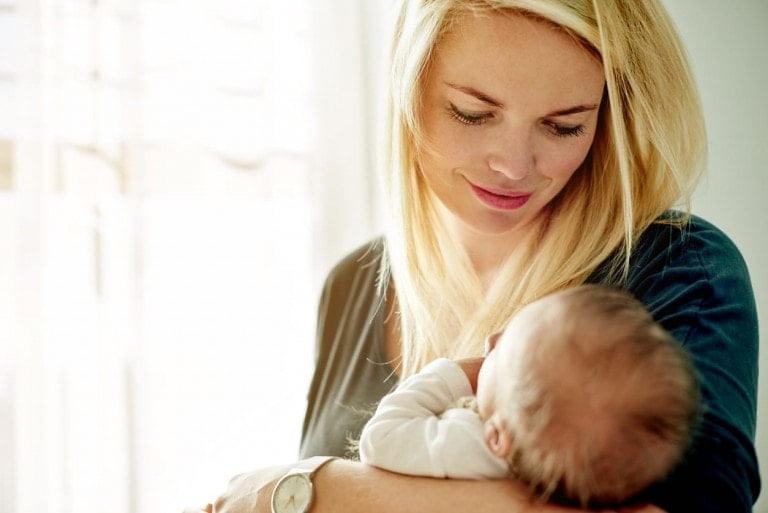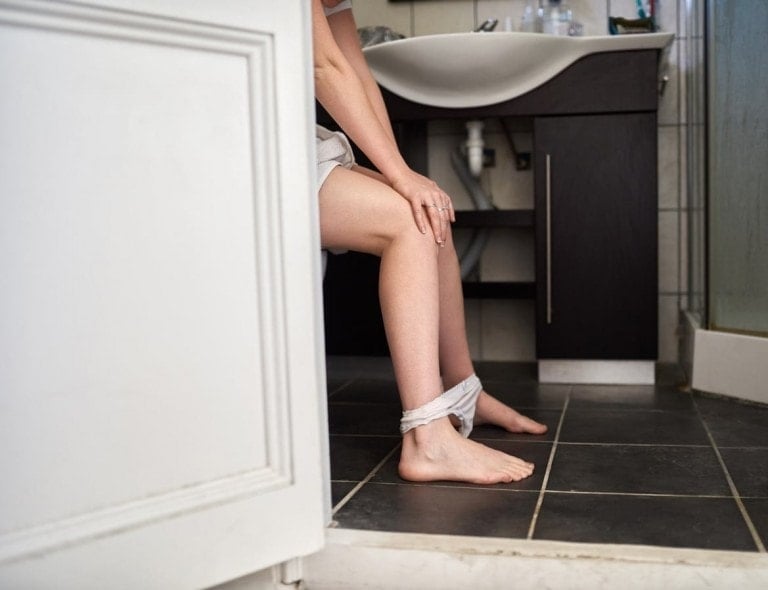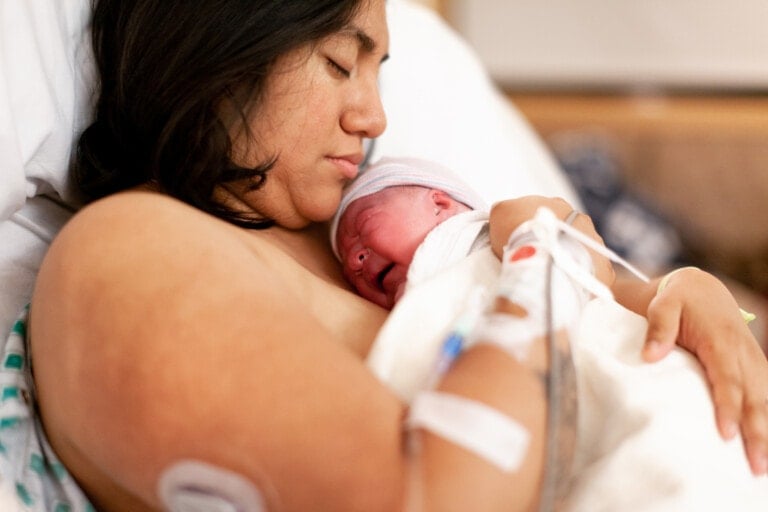You’ve just had your baby. Congratulations!!! You are now in (what we call) the fourth trimester, which is the postpartum period. The postpartum period begins after the birth of your baby and is the first 3 months/12 weeks of your baby’s life. This is when mothers learn about their babies, discover their new role as a parent (or becoming a 2nd-time parent, etc.), and fall deeply in love with their new little one.
Then the long days and nights come rolling in…
The demands of caring for a newborn become nonstop and often cause mothers to forget about caring for themselves. They are so busy caring for their babies (and rightfully so) that they put their own needs aside. Yes, being a mother is a full-time job that requires sacrifice, but mothers should never stop caring for their own needs. As they say, you need to put on your oxygen mask first before you can help others around you. And that’s exactly what I want to talk about in this article. It’s time that mothers start putting themselves on their priority list and recognize that they need to take the time to give themselves a little TLC as they care for their wee-ones and not feel guilty. Just because you are now a mother doesn’t mean you should lose sight of yourself.
The postpartum period can be such a fragile and emotional time. We have to remember that mothers are going through many emotional and physical changes. She needs to take care of herself to recover and rebuild her strength and recognize that she will need some help and support. Here are some things to help mothers take better care of themselves throughout their postpartum journeys.
Rest

We all know that newborns sleep at crazy hours and in spurts. Their internal clocks have not adjusted yet to the outside world. A typical newborn wakes up about every two to three hours. They will need to be fed, changed, burped, and/or comforted each time. The demands of doing the same thing all day and night can become overwhelming and exhausting for anyone. This is why it’s important to find ways to catch up on some much-needed rest throughout your day (and night). It will help you feel more like a human and less like a zombie, or should I say, mombie. Here are some tips that may help you find ways to get more rest.
- Reassign Responsibilities: In those first few weeks, mothers need to be relieved of all responsibilities other than feeding the baby and taking care of themselves. Dishes, laundry, cleaning the house, grocery shopping, etc., should be reassigned to someone else during this phase. (If possible.)
- Share the Load: Split night responsibilities/nighttime duties with your partner or family member.
- Try to sleep at times when the baby sleeps: Easier said than done, I know. I understand that you may have laundry to do and dinner to get ready. But then you need to remember bullet point #1. These few minutes of rest several times a day can add up and make you feel better.
- Cut Down on the Steps and Save Time: Have a co-sleeper or put your baby’s bed near yours for night feedings. This will save you some steps and valuable time.
- No Entertaining: Guests are always nice to have. However, many new mothers feel like they need to entertain or be good hostesses. This is not the time to entertain. If guests come over, don’t feel bad if you need to excuse yourself for a nap or feed your baby.
- Go Outside: Getting some fresh air can help clear your mind. This is why I think all mothers should go outside for a few minutes each day. You can begin walking and doing postpartum exercises, as advised by your health care provider.
- Help with Feedings: After baby has established a good latch and it’s been a few weeks, introduce a bottle to breastfed babies for an occasional nighttime feeding. This way, someone else can feed the baby, and you can have a longer period of uninterrupted sleep.
Nutrition

Now that you’ve had a baby, your body has gone through a lot. It needs to recover from pregnancy and childbirth. And to promote healthy healing and recovery, a healthy diet is essential. Most lactation experts will add that breastfeeding mothers need to take particular care in what they feed their bodies and add 500 healthy calories to their diet.
Eating well isn’t simple. It requires planning, especially when you are out of your normal routine. Mothers can get overwhelmed and exhausted caring for their newborn and/or family. Sometimes dinner is completely forgotten about. Before you know it, you could be skipping meals and living straight off coffee. (You’re not alone!)
A healthy diet during the postpartum period should be a series of balanced meals and plenty of fluids. The meals should consist of six key elements – grains, vegetables, fruits, dairy, protein, and healthy fats. To help you with this, make use of salads, smoothies, veggie snacks, and be sure to sit down to eat. If you aren’t good at planning out your meals, ask friends and families to bring some healthy options. Setting up a meal train can be so helpful with all of this! Share this list with your friends of freezer meals to take to tired new parents.
Consult your health care provider or a registered dietitian to learn more about postpartum nutrition. Certified lactation consultants can also help with advice about nutrition while breastfeeding.
Exercise

There are many benefits of exercise when living with a newborn. It can give you increased energy levels, improved sleep, better immunity, and feel-good hormones to help you fight off everyday stresses. What mama doesn’t want that?! But exercising doesn’t have to take up hours of your day. Even 10 minutes of good exercise will produce a whole range of positive results.
Exercising with a newborn can mean going for a walk with baby in a sling or carrier, jogging with the stroller, or enrolling in an exercise class that involves your baby. But if you prefer to exercise on your own, here are some options:
- Put on an exercise DVD or app at home and get a quick workout in with baby.
- Go for a walk or jog with your baby or go before your partner leaves for work or after they return home.
- Join a gym that offers a safe and trusted babysitting service or
- Go to a health club that provides mom and baby classes.
- Practice postpartum yoga at a studio or at home.
- Invest in some home equipment, or at least some weights and elastic bands
Mental Health

When you are doing the same things day in and day out, taking care of another human life with very little sleep, it can be challenging to keep your sanity as a new mom. To some people, it doesn’t sound like feeding, changing diapers, soothing a baby’s tummy, and caring for a baby is all that much, but it can be a lot more than they realize. Here are some ways to look after your mental health:
- Join a support group to meet other new parents – it’s nice to get out of the house and meet other mothers in the same stage that you’re in.
- Express both your negative and positive experiences to trusted support people
- Take breaks with your partner and with friends.
- Take regular trips out on your own: manis and pedis, massages, etc.
- Find a quiet place to reflect sometime during the day.
- Close your eyes and practice slow, deep breathing
- Watch some favorite movies or read a favorite book.
It’s good to continue these things long after the postpartum period. They help you feel happier and healthier and enable you to be the best parent you can be.
A Helping Hand
Many parents do fine on their own. However, having someone else come in to help with the responsibilities around the house usually makes the adjustment to a new baby a whole lot easier. Helpers can be family, friends, housekeepers, or postpartum doulas. A family member such as the new baby’s grandmother or aunt may be able to come for a few days or longer to help! If you need more of a professional’s help for a longer time, housekeepers and postpartum doulas can offer various services.
The postpartum time can be challenging. I hope this list helps you take the time you need to take care of yourself. Because your baby needs a healthy mama. What are some things that you did for yourself during the postpartum time? Any tips? I’d love to hear what was helpful for you!





























